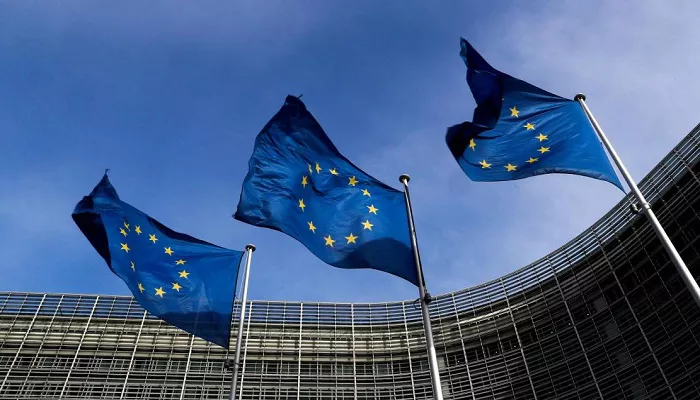BRUSSELS (Reuters) — Euro zone finance ministers recommended on Thursday that Bulgaria join the euro zone as its 21st member starting January 1, 2026. This follows positive evaluations of Bulgaria’s readiness by the European Commission and the European Central Bank.
Paschal Donohoe, who chairs the meetings of euro zone finance ministers, said at a press conference, “The Eurogroup agreed today that Bulgaria fulfills all the necessary conditions to adopt the euro.”
The recommendation will now be formally approved by all 27 EU finance ministers on Friday, and then by EU leaders on June 26.
The exchange rate for converting the Bulgarian lev into the euro will be set by EU finance ministers during a meeting in early July. This will give Bulgaria six months to prepare the technical aspects of the currency change before the start of 2026.
Bulgaria has aimed to switch from the lev to the euro since it joined the European Union in 2007. However, after many years of waiting, public enthusiasm has faded. A recent Eurobarometer poll in May showed that 50% of Bulgarians are now skeptical about adopting the euro. Some fear the change could lead to higher prices.
To receive this positive recommendation, Bulgaria had to meet several economic criteria. One key rule is that the country’s inflation cannot be more than 1.5 percentage points above the average of the three EU countries with the lowest inflation. In April, those countries were France (0.9%), Cyprus (1.4%), and Denmark (1.5%). Bulgaria’s inflation rate of 2.8% narrowly met this standard.
Bulgaria also had to avoid excessive government deficits. The country’s budget deficit is expected to be 3% in 2024 and 2.8% in 2025, meeting the EU’s limit. Public debt is low, at 24.1% of GDP in 2024 and expected to rise slightly to 25.1% in 2025, well below the 60% ceiling set by EU rules. Additionally, Bulgaria’s long-term bond interest rates remain within acceptable limits compared to those of the best-performing EU countries in inflation.
Finally, Bulgaria had to demonstrate a stable exchange rate by remaining within a 15% margin of the central parity rate in the Exchange Rate Mechanism II (ERM II). This was easily achieved because Bulgaria has operated a currency board since 1999, fixing the lev to the euro at a rate of 1.95583.
Bulgaria’s adoption of the euro will come three years after Croatia became the most recent country to join the euro zone at the start of 2023.
With Bulgaria’s entry, only six EU countries will remain outside the single currency: Sweden, Poland, the Czech Republic, Hungary, Romania, and Denmark. None of these have immediate plans to adopt the euro, either due to political reasons or because they do not yet meet the economic criteria.


